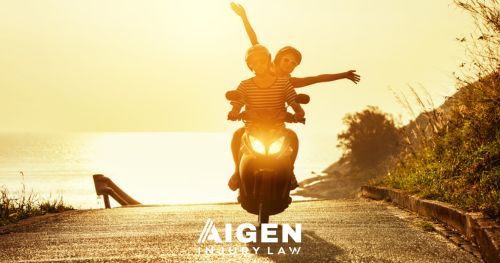
Florida is known as the Sunshine State for its year-round warmth and abundant sunny days. However, summer can bring extreme heat and humidity, making motorcycle riding challenging and potentially dangerous if proper precautions aren’t taken.
With temperatures routinely exceeding 90°F and heat indices over 100°F, dehydration, heat exhaustion, and heat stroke become real risks for riders across the state. Read on to learn tips for staying cool while riding to have an enjoyable summer on your motorcycle.
If you are involved in a motorcycle collision in the Miami area, secure the legal representation you deserve to combat bias and maximize your compensation. A skilled Miami motorcycle attorney can provide the guidance and advocacy needed to navigate your case effectively.
The Importance of Hydration While Riding
Riding a motorcycle in Florida’s scorching summer can affect your safety on the road. The intense heat can quickly lead to dehydration, which occurs when your body loses more fluid than it takes in. Dehydration impairs concentration and slows reaction times, increasing the risk of accidents.
As dehydration progresses to heat exhaustion, you may experience dizziness, confusion, and fainting symptoms. If you don’t stop and cool down, it can quickly lead to heat stroke, a life-threatening condition that requires immediate medical attention.
These physical effects compromise your ability to stay focused and react to road conditions, raising the chance of a serious crash.
Avoiding Heat-Related Illness and Dehydration
Taking active measures to avoid heat-related conditions is crucial when riding a motorcycle in Florida’s sweltering summer heat. Here are some effective strategies:
- Ride During Cooler Hours: The hottest part of the day in Florida typically falls between noon and 4 p.m. Plan your rides for the early morning or later evening hours when the temperatures are more manageable. If you must ride during the peak heat, keep your trips short and consider taking breaks every 30-60 minutes in air-conditioned spaces to cool down.
- Wear Cooling Gear: Invest in specialized motorcycle apparel designed to keep you cool. Cooling vests, for instance, use evaporative cooling or phase-change materials to lower your body temperature. Look for moisture-wicking base layers made of polyester or merino wool and vented outer jackets and pants that promote airflow and evaporation.
- Use Hydration Packs: Staying hydrated is essential for regulating body temperature. Carry a hydration pack or insulated water bottle that allows you to sip water frequently throughout your ride. Small, frequent sips are better than gulping down large amounts at once. Consider adding electrolytes to your water to replenish essential minerals lost through sweat, especially on longer rides.
- Monitor Weather Conditions: Stay updated on weather forecasts and heat advisories, and adjust your riding plans accordingly. Extremely high heat indexes (typically around 90°F or above) and high humidity can increase the risk of heat-related illnesses.
- Listen to Your Body: Pay close attention to how you’re feeling throughout your ride. If you experience any symptoms of dehydration or heat exhaustion, stop riding immediately, find a cool, shaded area, and rehydrate with water or electrolyte drinks. If your symptoms worsen, seek immediate medical attention.
Always Wear Safety Gear, Even in Elevated Temperatures
The instinct to wear cooler clothing when riding, like shorts, t-shirts, or flip-flops, may seem logical during Florida’s hot summers. However, doing so increases your risk of injury in a crash or fall. Always wear proper protection when riding; it can help keep you safe, and in some circumstances, the state’s motorcycle laws require it.
Florida statute 316.211 mandates all motorcycle riders under 21 wear an approved helmet and eye protection. For riders 21 and over, wearing a helmet is optional only if they carry at least $10,000 in medical insurance for injuries sustained in a crash.
Florida’s RideSMART program strongly recommends that all riders wear jackets, pants, boots, gloves, and a helmet regardless of age. Choosing light colors, breathable fabrics, and armored mesh jackets and pants for summer can promote cooling airflow while providing essential protection.
Don’t Let a Summer Accident Spoil Your Ride
Riding a motorcycle in Florida’s hot summers requires extra precautions to stay cool and hydrated. Drinking plenty of fluids, wearing the right gear, and riding during cooler hours can minimize the risks of heat-related illnesses and ensure a safer, more enjoyable ride.
If you’ve been involved in a motorcycle accident, our Florida motorcycle accident lawyers at Aigen Injury Law can offer experienced legal guidance. Contact us today for a free consultation during which we can discuss your case and help you file a compensation claim.